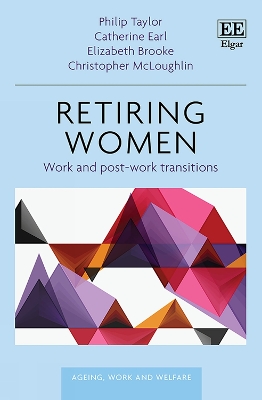Ageing, Work and Welfare
1 total work
Retiring Women
by Philip Taylor, Catherine Earl, Elizabeth Brooke, and Christopher McLoughlin
Contrary to common representations of the situation of older workers, the data reveal how workplaces can be seen as relatively benign, and retirement viewed positively. It contributes to academic debate regarding identity, purpose and meaning in later life, identifying challenges for work-focused public policy.
Students and scholars of human resource management, sociology, gerontology and social policy will appreciate the extension of understanding older women’s life course trajectories that the book offers. Public policy-makers will benefit from the different representations of older women in the book, and the identification of where they would benefit from policy changes.
